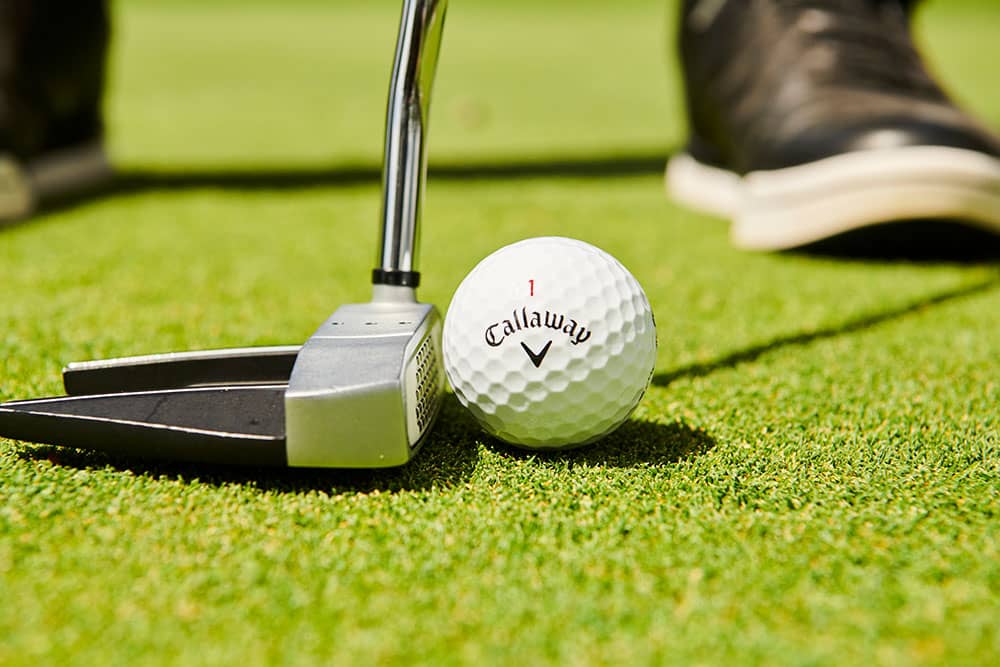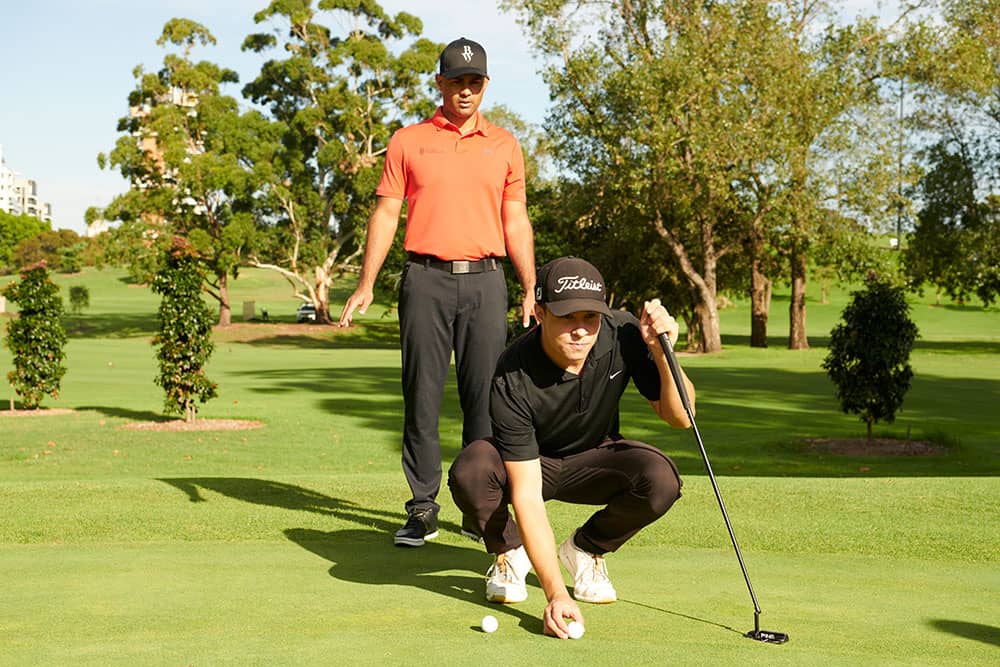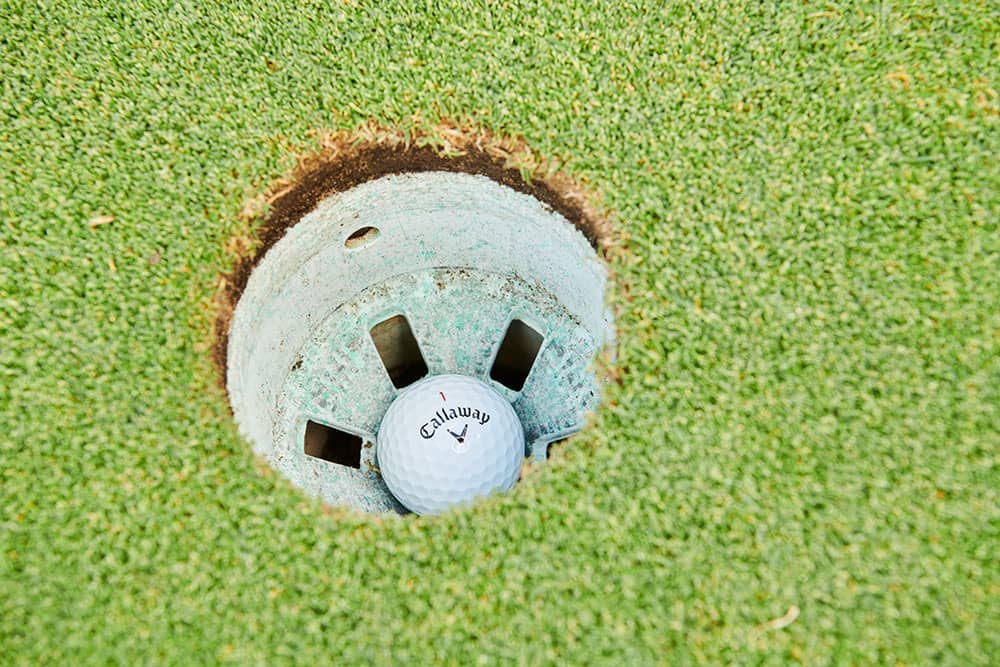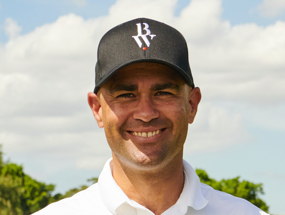Do you know which club gets used the most often? The putter. While the long ball often gets all the attention, the putter is easily one of the most important clubs in your bag.
Poor technique on the putting green can quickly lead to higher scores on each hole. Here are tips for improving your putting technique so you can approach the putting green with confidence.
How To Become A Better Putter
-
Simplicity
From a technical point, putting is the simplest of all the golfing movements. The ball does not leave the ground. The club should not rotate. There is no body movement other than the rocking of the shoulders.
Tip: Get your putting fundamentals correct. The putter is the shortest club in the bag, so we stand closer to the ball with less flex in our legs with more hinge at our hips, really allowing those arms to hang nice and loose.
The putter grip sits a little more in the palms vs the fingers of both hands, negating rotation through the hands and fingers. Use your chest and shoulders as the engine for the stroke. Focus on keeping the same distance back and through, as well as the same speed back and through.
-
Feel and Speed Is Everything
When we are on the green, we tend to get greedy and go straight for the hole. Even when it just misses the hole and goes way past, we say out loud how unlucky we were that the ball didn’t go in and then proceed to miss the putt coming back!
The PGA Tour now has an excellent infographic in many of their tournaments showing a PGA Professionals’ chances of making the putt from a certain distance. The numbers are normally quite surprising and show that pros do not hole almost every putt that they stand over. The statistic that is more important is that the chances of making the next putt are close to 100%. That first putt is always going to be close to the hole.
Tip: Spend more time on the green developing feel. Instead of focusing all your attention on trying to hole those putts, do what you can to see how close you can get the ball to the hole.
-
Don’t Neglect the Short Stuff
The hard work is not done when you have hit your first putt close to the hole. In fact, those shorter putts are the ones that we normally feel most pressure over. One voice in our head says “the hard work is done, this is a given” whilst another voice says “what if you miss this putt?” and the pressure is on!
Tip: Around the world is a great little game for this. To play:
- Find a hole that sits on a bit of a slope
- Place four tees approximately five feet from the hole — one straight up the slope, one straight down, one left to right and the last right to left
- Hole as many putts in a row from each station
- Go clockwise to anti-clockwise
- Continue playing, trying to better your last score
-
Put Pressure on Yourself Whilst Practicing
I remember standing on the putting green at my local golf club for hours, saying that certain putts were to win a major tournament. I would start by trying to win The Masters, then The US Open, followed by The British Openand then The USPGA. Throw in the odd putt to help Europe win The Ryder Cup!
I was consistently putting pressure on myself. If you are practicing putts and not feeling the pressure, then you are susceptible to crumbling out on the course!
Tip: Play more games against opponents on the practice putting green. Play for a coffee, a glass of wine, lunch, or just simply pride! Pressure makes you perform on the green and on the course.
-
The Path of the Putter Is Key
Putters come in all shapes and sizes. However, one thing is consistent throughout — every putter out there has some form of alignment aid such as:
- A long line
- A small line
- Three parallel lines
- Two discs the size of golf balls (my personal favourite Odyssey 2-ball!)
The key is to get this alignment aid moving straight back and through towards the target to get that ball rolling on line.
Tip: Here is an exercise for developing a squarer hit on your putts:
- Set up to a relatively straight putt of your choice on the practice green
- Place two tees outside the golf ball
- Make strokes between the tees, making sure not to hit either tee
-
Never Up, Never In
Tip: Work on your distance control by:
- Choosing a long putt
- Placing a semi-circle of tees on the other side of the hole
- Trying to get all the putts you hit in the semi-circle beyond the hole
- Do not focus on the hole, just the semi-circle
-
Routine Is Everything
There is no better place to have a pre-shot routine than on the putting green. On the course, you may get away with missing a few practice swings here and there or hitting the odd errant shot, but on the green, you need a bulletproof routine.
Tip: I like to have practice strokes looking at the hole, this gives me instant feedback on where I am stroking the ball to. After two practice strokes looking at the hole, stand over your putt, take one look at the hole and then hit the putt. This allows for a seamless more subconsciously hit putt versus thinking too much and “freezing” over the putt. This is just one of many potential routines. At the end of the day, own your routine.
-
Pay Attention to the Pros
Comparing yourself to a pro can help put things into perspective — even they miss!F or example, here are some PGA tour averages:
- Putting from 3′ – 99.43% made
- Putting from 4′ – 91.90% made
- Putting from 5′ – 80.98% made
- Putting from 6′ – 69.92% made
Ready To Work on Your Putting Game?
If you would like personalised coaching on improving your putting game, please feel free to contact me. I offer remote coaching, video analysis, and specialised lessons to help improve all aspects of your golf game.





